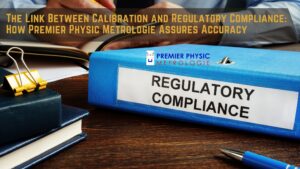In today’s globalized business landscape, ensuring the quality and reliability of products and services is paramount. Companies across the Philippines are increasingly turning to ISO certification and calibration services to achieve these goals. This comprehensive guide will walk you through the intricate world of ISO certification and calibration services in the Philippines, helping you understand their importance, benefits, and how to navigate the process seamlessly.
What is ISO Certification?
ISO, or the International Organization for Standardization, is an independent, non-governmental international organization that develops and publishes standards to ensure the quality, safety, and efficiency of products, services, and systems. ISO certification is a formal recognition that a company’s processes, products, or services meet these international standards. But what does this mean for businesses in the Philippines?
Ensuring Quality and Compliance
ISO certification is like a seal of quality approval for businesses. It signifies that a company adheres to strict international standards in its operations. This level of quality assurance builds trust among customers, partners, and stakeholders. Whether you’re in manufacturing, healthcare, or any other industry, ISO certification is a competitive edge that demonstrates your commitment to excellence.
Access to Global Markets
The Philippines is a hub for businesses looking to expand internationally. ISO certification opens doors to global markets by ensuring that your products or services meet the standards recognized worldwide. It simplifies entry into markets that demand high-quality and standardized processes, ultimately boosting your international presence.
ISO Certification Process
Achieving ISO certification involves a structured process that varies depending on the specific standard you’re pursuing. However, most ISO certification processes share common stages:
1. Gap Analysis
Before embarking on the certification journey, it’s crucial to assess your current processes and identify the gaps between your existing practices and ISO standards. This step helps you determine the necessary changes and improvements.
2. Documentation
Comprehensive documentation of your processes is a fundamental requirement. It involves creating quality manuals, procedures, and work instructions that align with ISO standards. These documents serve as a reference for employees and auditors.
3. Training
Properly trained employees are essential for maintaining ISO compliance. Ensure that your team understands the standards and how to implement them effectively. Training is an ongoing process to keep your workforce up-to-date with evolving standards.
4. Internal Audit
Conduct internal audits to assess your organization’s readiness for the certification audit. Identify and rectify any non-conformities to ensure a smoother external audit.
5. External Audit
An accredited certification body will perform an external audit to evaluate your compliance with ISO standards. If successful, you’ll receive ISO certification.
6. Continuous Improvement
ISO certification isn’t a one-time achievement; it’s an ongoing commitment to quality. Regular assessments and improvements are necessary to maintain compliance and reap the full benefits.
Calibration Services in the Philippines
Calibration services are closely tied to ISO certification, especially for businesses that rely on precision instruments and equipment. Calibration ensures that measurement instruments are accurate and reliable, which is vital for industries such as manufacturing, healthcare, and laboratories.
Importance of Calibration
Inaccurate measurements can lead to costly errors, product defects, and even safety hazards. Calibration services in the Philippines help businesses maintain the accuracy of their instruments, guaranteeing consistent product quality and compliance with industry regulations.
Types of Calibration Services
Calibration services cover a wide range of equipment, including but not limited to:
- Temperature Calibration: Ensuring the accuracy of temperature-measuring instruments.
- Pressure Calibration: Verifying the precision of pressure gauges and transmitters.
- Electrical Calibration: Calibrating electrical measurement devices like multimeters and oscilloscopes.
- Dimensional Calibration: Confirming the accuracy of tools and instruments used in manufacturing.
ISO Certification and Calibration: A Synergy
The synergy between ISO certification and calibration services is evident. ISO standards often require organizations to maintain calibrated instruments as part of their compliance. When seeking ISO certification, businesses in the Philippines should also consider investing in calibration services to meet the standard’s requirements fully.
FAQs
Q: What are the benefits of ISO certification? A: ISO certification enhances quality, credibility, and access to global markets.
Q: How often should calibration be performed? A: The frequency of calibration depends on the instrument’s criticality and usage. Some may require monthly calibration, while others can go longer between calibrations.
Q: Can small businesses in the Philippines afford ISO certification? A: Yes, ISO certification is attainable for businesses of all sizes. The investment pays off through increased efficiency and market opportunities.
Q: Are there local calibration service providers in the Philippines? A: Yes, the Philippines has numerous calibration service providers with international accreditation.
Q: Can ISO certification be revoked? A: Yes, ISO certification can be revoked if an organization fails to maintain compliance with the standards.
Q: What is the cost of ISO certification in the Philippines? A: The cost varies based on the certification body and the complexity of the organization’s processes. It’s advisable to obtain quotes from different certification bodies.
Conclusion
Understanding ISO certification and calibration services in the Philippines is essential for businesses aiming to thrive in a competitive market. ISO certification ensures quality and compliance, while calibration services maintain the precision of instruments. Together, they form a powerful combination that can elevate your business to new heights.
If you’re a business owner in the Philippines, consider embarking on the journey towards ISO certification and investing in calibration services. It’s not just a mark of quality; it’s a pathway to success in the global marketplace.




